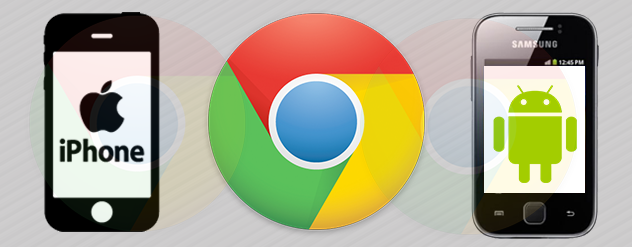 Today Google has bring chrome apps to Android and iOS by announcing that developers can submit the applications designed for chrome browser to Google Play and Apple’s App Store using Apache’s well-known open-source Cordova platform for turning web apps into native apps.
Today Google has bring chrome apps to Android and iOS by announcing that developers can submit the applications designed for chrome browser to Google Play and Apple’s App Store using Apache’s well-known open-source Cordova platform for turning web apps into native apps.
Google has introduced a developer preview of a toolchain for building native apps using HTML, CSS and JavaScript. With the help of toolchain, developers can easily take their existing Chrome Apps and bundle them into a native shell and then submit to Google Play and Apple’s App Store.
Google explained in a blog (http://blog.chromium.org/2014/01/run-chrome-apps-on-mobile-using-apache.html) – “The toolchain wraps your Chrome App with a native application shell and enables you to distribute your app via Google Play and the Apple App Store. We provide a simple developer workflow for packaging a Chrome App natively for mobile platforms. You can run your Chrome App on a device or emulator using the command-line or an IDE. Alternatively, you can use the Chrome Apps Developer Tool to run your app on an Android device without the need to install an IDE or the mobile platform’s SDK.”
Google has also made many core Chrome’s APIs, for Chrome apps, will run natively on mobile devices well. Those API’s are:
1) identity – sign-in users using OAuth2 without prompting for passwords
2) payments – sell virtual goods within your mobile app
3) pushMessaging – push messages to your app from your server
4) sockets – send and receive data over the network using TCP and UDP
5) notifications (currently Android only) – send rich notifications from your mobile app
6) storage – store and retrieve key-value data locally
7) syncFileSystem – store and retrieve files backed by Google Drive
8) alarms – run tasks periodically
Related Posts...
TechnologiesWhat's Hot
Nov 25th, 2025
Artificial intelligence has steadily moved from being a personal productivity assistant to becoming a powerful team collaborator. OpenAI’s latest feature—Group Chats in ChatGPT—marks one of the biggest steps yet toward […]
Read more
Sep 2nd, 2025
For years, creating digital content was all about one thing: pleasing search engines. If you ranked on Google, you won. Everything else—social shares, referrals, even conversions—usually flowed from that visibility. […]
Read more
Aug 28th, 2025
Grocery supply chains form the backbone of food distribution, ensuring products move from farms and manufacturers to store shelves and, increasingly, to customers’ doorsteps. Traditionally, these supply chains struggled with […]
Read more
 Today Google has bring chrome apps to Android and iOS by announcing that developers can submit the applications designed for chrome browser to Google Play and Apple’s App Store using Apache’s well-known open-source Cordova platform for turning web apps into native apps.
Today Google has bring chrome apps to Android and iOS by announcing that developers can submit the applications designed for chrome browser to Google Play and Apple’s App Store using Apache’s well-known open-source Cordova platform for turning web apps into native apps.